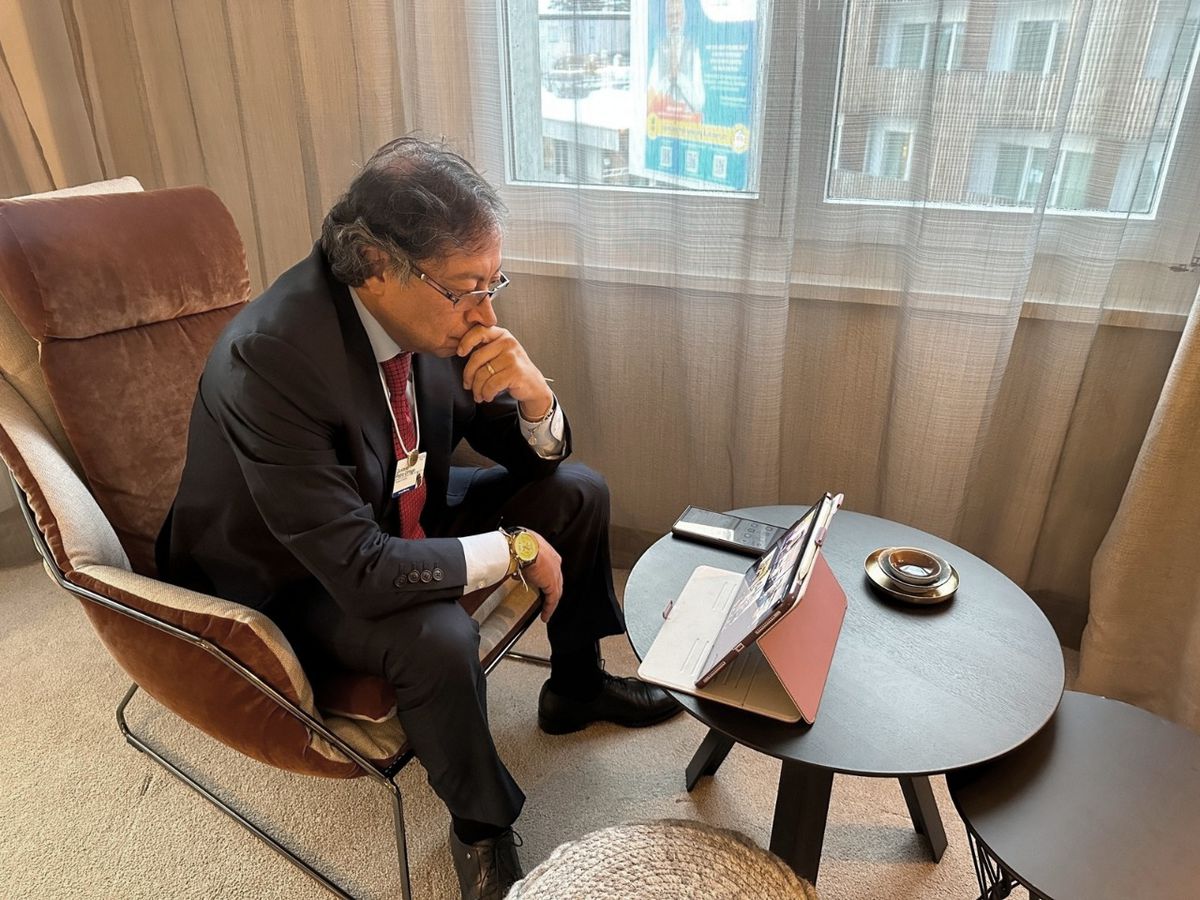
“We must disseminate progressive information as widely as possible in order to transform Colombia. That from now on every builder or constructor of change is a communicator or a social communicator”.
President Gustavo Petro ended a national discussion by calling on the public to go viral on the benefits of their government: How does this government understand press freedom? The trigger was the more than forty messages that he has written on his Twitter account in the past few weeks and in which he refers more or less strongly to the work of the press. A mixture of journalism lessons, corrections, confrontation and disqualification.
The content of these messages shapes what the President thinks about journalism and politics. In mid-November 2022, at the Simón Bolívar awards ceremony and in front of an auditorium full of journalists, Petro said: “Journalist and politician are on the same stage. This ability to communicate more within society creates a permanent tension, a tension that will always exist as long as the profession of journalist and career politician exists. (…) But this tension, which continues to this day, complicates the relationship between politicians, professionals and journalists. A politician here in the midst of so many journalists can take risks. I like risks, that’s why I came. (…) This somewhat difficult line to draw between journalism as a social communicator and politics as a social communicator, because it will confront us, it will find us, we will always be together, we will always be at odds.”
And so we face each other and together in this communicative constellation of the President, in which he draws a truth that he is the only one who wants to superimpose. A truth that radiates from above, that seeks no reciprocity, and where there are few other voices to contribute. What are the implications of this confrontation that the President is beginning to realize?
In his first six months in government, several key figures in the Historic Compact, as well as the President, have made it clear that they feel unfairly treated “by the establishment media”. They warn that they are misunderstood and that there is constant misinformation about them. They also claim that they have the right to defend themselves and to communicate their achievements. Nothing new. President Iván Duque ended his days by saying that the country’s main problem is disinformation and that its figures are being falsified by journalists. The same lament is heard in almost every other country in Latin America.
While some of these Presidential interactions with the media certainly have a legitimate aim, such as: B. providing certain information or requesting a rectification, they all imply a method that imposes a single vote, a single truth that the President constructs.
Newsletter
Current affairs analysis and the best stories from Colombia, delivered to your inbox every week
GET THIS
The Editor-in-Chief is a figure who constantly corrects the media in hopes that they will refer to his government in the terms he wishes. His goal is to soften editorial positions and end up accepting a previously dictated script. It is the victory of the Great Story. The Victory of Propaganda; The main enemy of journalism.
A year ago, the Mayor of Yopal (Casanare), Luis Eduardo Castro, launched his “Fuera mal lenguas” campaign. It was an “invitation” to the media not to badmouth anyone, let alone their mayor’s office. “Criticism is welcome, but it has to be constructive and factual, not destructive (…) I don’t know whose interests they are doing it with, only they know, but we won’t allow it.”
Who will determine what the objective information is, what is not objectionable? Will it be just the President or is it a power that any official can have? Who dictates the script?
The rules of the game that support freedom of the press were created to encourage our development as citizens who are fully autonomous and free to think. They are also principles that serve to right abuses and injustices, such as those perpetrated against journalists in Colombia for decades. Murders, government espionage campaigns, censorship.
Upholding civil liberties means defending freedom of the press. This creates the impression that there are intolerable statements that misinform the media or that there are no ethics on the part of certain content creators.
The next few weeks will be crucial to find out if the relationship with the press will also be part of the principles promised by the President: “In this administration there will always be dialogue, listening, common goods, common projects will be built. ” These joint projects should aim to avoid Manichaeism before the media; prevent violence against journalists; promote communication projects in the more than 300 communities where there is no local information; create media education campaigns that seek critical citizenship to know how to navigate and understand the world of this time The opposite path has great potential to become a force that resists these freedoms.
Jonathan Bock He is a journalist and director of the Foundation for Freedom of the Press, FLIP.
Subscribe here to the EL PAÍS newsletter on Colombia and receive all the latest information about the country.

